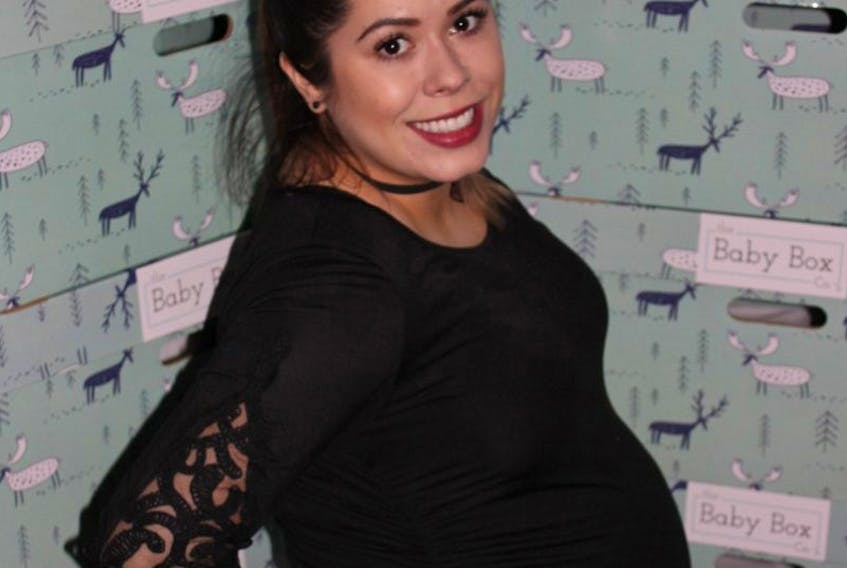
The centre is adopting the Finnish “baby boxes” program by choosing to become a Baby Box Co. distributor, offering what is essentially a starter kit for newborn babies to local parents.
Since 1949, all expectant parents in Finland have been given a package by the country’s social insurance institution, provided the mother-to-be visits a doctor or prenatal clinic before the fourth month of pregnancy. The contents of the box have changed over the years, but include a mattress pad, clothing, blankets, diapers, toys, books and other essentials.
Parents are meant to use the firm mattress-lined box as their baby’s first bed. That, as well as the increased prenatal care, has been credited for a drastic drop in Finland’s infant mortality rate, from 65 out of 1,000 babies before the baby box program to about three per 1,000 births today.
Adopted by other countries
A number of other countries have adopted similar programs, and Baby Box Co. partners with hospitals, government agencies and non-profit organizations around the world to provide the kits and continuing education to new parents. Based in the United States, the company has offices in Canada, the UK, Australia and Singapore.
The St. John’s Native Friendship Centre has received its first shipment of baby boxes, and will begin distributing them at the end of this month.
“We’ve been looking to add programs to fill some gaps in our services to prenatal parents and caregivers,” Walsh, now a mother herself, explained. “It’s something that’s been in the back of our minds for a while.
“Not a lot of people understand the risk of SIDS (sudden infant death syndrome) and this is a wonderful way to bring awareness, while also breaking down stigma — you don’t have to have the best mattress or the best crib for your newborn.”
SIDS is the sudden, unexpected and unexplained death of an apparently healthy infant. Though it can’t be predicted or prevented, there are risk reduction strategies, most of them centred around providing babies with a firm, flat mattress in a safe sleeping area free of clutter, and putting them to bed alone and on their back.
Rates of SIDS declining
According to Baby’s Breath Canada (formerly the Canadian Foundation for the Study of Infant Deaths), rates of SIDS across the country have been declining since the early 1980s, though aboriginal babies have a 6.5 per cent higher risk. The reason isn’t yet clearly understood.
In order to receive a free baby box from the St. John’s Native Friendship Centre, parents or caregivers must present a certificate obtained from the Baby Box Co. website, showing they have completed a short online training course.
The boxes are made from a sturdy cardboard with a slow burn rate in case of fire, printed with a baby-friendly pattern. Inside are a waterproof mattress pad, cotton sheet, a tote bag and educational materials, along with a subscription to the Baby Box University website, which allows caregivers to access activities and resources.
“We’ve also included a little toy; a little baby owl that’s the perfect size for a small baby to hold,” Walsh said.
The boxes, which meet Health Canada standards, are expected to fit the average baby about six months or so, and can be recycled as a storage box after that.
Interest in the boxes has been good so far, Walsh said, stressing that they are intended not only for parents and caregivers with aboriginal backgrounds or current members of the centre.
Available to any expectant mom
“We service both the aboriginal and non-aboriginal communities, and we are very judgment-free,” Walsh explained.
The centre’s Family Resource Program, which is quite new, offers services like a drop-in playgroup twice a week, a community cupboard, where parents can access baby and toddler supplies and personal care items; a toy lending library, a parent resource library, and a support group for parents called Breathe.
“Parents come in and there’s no need to find a babysitter, we have child-minding in another room while we do things like canvas painting, cooking classes, movie nights — anything the parents want that goes towards self-care,” Walsh said. “We understand the importance of community and in order to heal a community, parents are an important part of that.”
The centre has 60 boxes on hand for the first distribution, and will be receiving 10 more every month, with the ability to add more according to demand. Anyone wishing to reserve a free baby box can call the St. John’s Native Frienship Centre at 726-5902 or e-mail Walsh at kwalsh@sjnfc. The boxes will be distributed at the centre, 716 Water Street, on Feb. 27 between 9 a.m. and 8 p.m.
Twitter: @tara_bradbury









